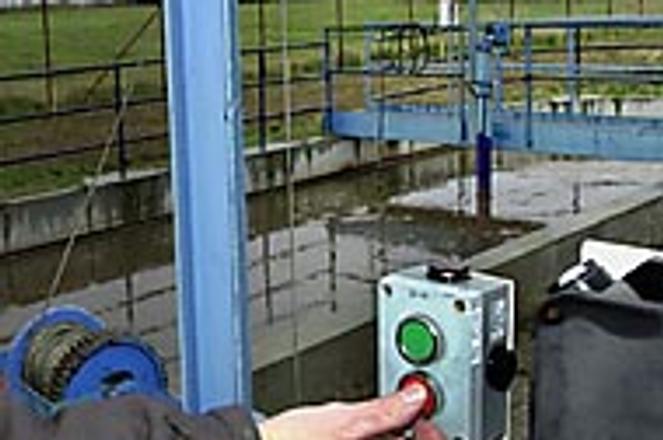A sum of $4.6 billion is the estimated cost of modernising urban waste water treatment facilities.photo: TASR
The failure of the government to decentralise responsibility for water utilities is preventing the EU and private companies from investing in waste water treatment plants in Slovakia.
To see significant investments in the water sector, EU representatives and investors say regional water utilities must be decentralised and ownership turned over to the municipal councils.
"With government ownership, it is difficult to manage sustainability of the projects in the long-run. It is important for us that the money is spent in the right way," said Hans van Vliet, desk officer for Slovakia at the General Directorate of the European Commission in Brussels.
Antonín Pokorný, the representative of Lyonnaise Des Eaux, one of the largest European investor in the water sector added: "The municipalities are our partner for negotiations, not the government."
A sum of $4.6 billion is the estimated cost of modernising urban waste water treatment plants if Slovakia is to fulfill the 'environment chapter' - a list of environmental laws Slovakia must pass if it is to gain EU membership.
EU funds, private water investors and international financial institutions are expected to be the main financial power behind the investments.
The EU directive, for which Slovakia has requested the transition period to 2015, requires the construction of waste water treatment plants in all municipalities or groups of neighbouring municipalities with more than 2,000 residents.
However, the modernisation document which turns the five regional water and sewage utilities, Vodárne a kanalizácie (VaK), owned by the state into six utilities controlled by municipalities was only approved by the government in summer this year - almost two years behind schedule. The process is expected to finish before June 2002.
"This is very unfortunate. In the current situation, we cannot properly react to the requests from Brussels with regards to the financing of the projects," said Zuzana Kasanická of the department for the programming of the environment projects at the Environment Ministry.
Once the water utilities are in the hands of municipalities, the EU will be more willing to provide its funds, mainly through the ISPA programme.
"When municipalities are the owners we will not be concerned about our finances. But we would like to see it as soon as possible," Vliet said.
Despite the fact that ISPA funds have been available in Slovakia for two years, only four projects have so far been approved.
The funds grant 50% of the project costs. The remaining expenses are to be covered by the municipalities who are expected to use the funds of private water investors such as Lyonnaise and the state budget depending on its fiscal possibilities.
The government has requested a 14 year transition period but in order to meet that deadline Pokorný said that the investments should begin as soon as possible.
"I dare to say the problem with the waste water treatment plants is one of the biggest for Slovakia to be solved on its run to the EU.
"Each investor, whether foreign or domestic, launching a green field investments needs land with water, canalisation and sewage. Investors are important for Slovakia," he said.
The Environment Ministry says the waste water of about 54% of the people living in Slovakia is cleaned in the treatment plants. The same figure for the Czech Republic stands at 70%.
However, the poorest regions in eastern Slovakia say their situation is alarming - 400 out of 441 municipalities in the Košice region are without a sewage system and 154 do not have running water.
Peter Vicén of the Košice regional office said: "Every home should have tapped water and a WC connected to the sewage system. The investments should start not because of the EU directive but because of the need to reach adequate standards of living. This is the 21st century."


